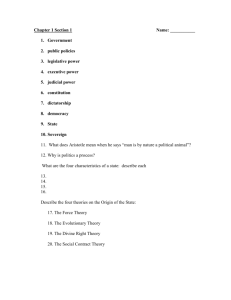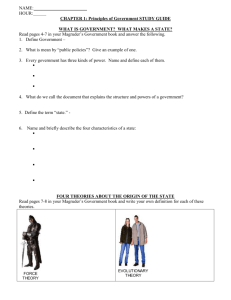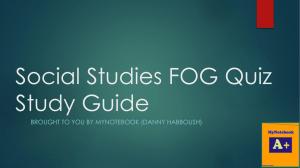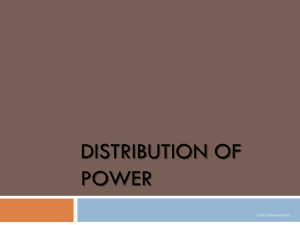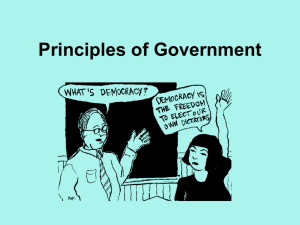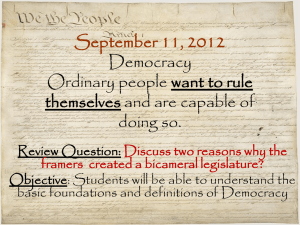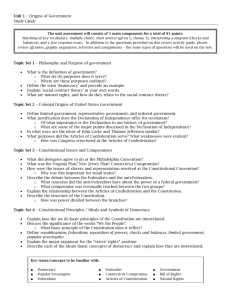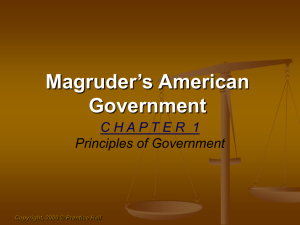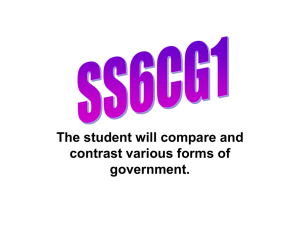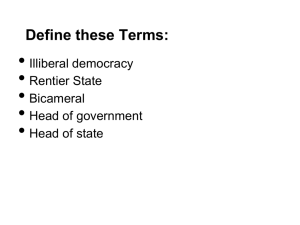American Government Principles Study Guide
advertisement
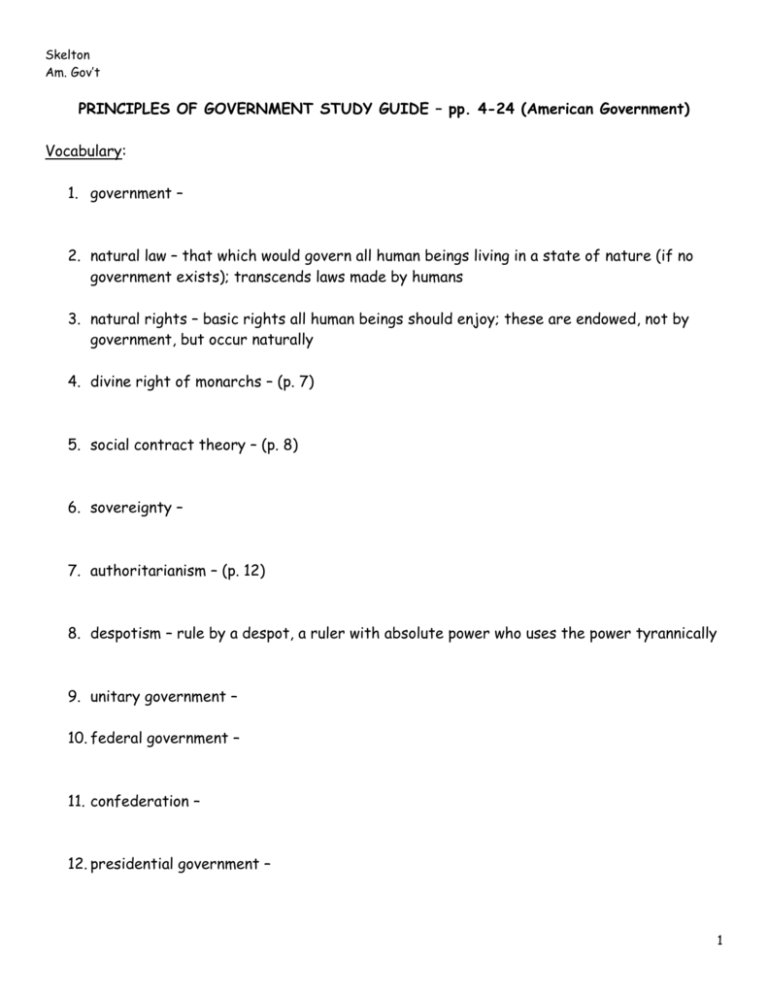
Skelton Am. Gov’t PRINCIPLES OF GOVERNMENT STUDY GUIDE – pp. 4-24 (American Government) Vocabulary: 1. government – 2. natural law – that which would govern all human beings living in a state of nature (if no government exists); transcends laws made by humans 3. natural rights – basic rights all human beings should enjoy; these are endowed, not by government, but occur naturally 4. divine right of monarchs – (p. 7) 5. social contract theory – (p. 8) 6. sovereignty – 7. authoritarianism – (p. 12) 8. despotism – rule by a despot, a ruler with absolute power who uses the power tyrannically 9. unitary government – 10. federal government – 11. confederation – 12. presidential government – 1 13. parliamentary government – 14. dictatorship – 15. democracy – 16. direct democracy – 17. representative government – 18. anarchy – (p.20) 19. republic – (p. 12) Questions: 20. What characteristics define a state? a. b. c. d. Population-Territory-popular sovereignty – the belief that people are the source of power in government government— 2 For what reasons do people form governments? They form governments to… a. create a more perfect union – united we stand, divided we fall b. establish justice – law must be reasonable, fair and impartial c. ensure domestic tranquility – order is essential to the well being of society d. provide for the common defense – ensure security of the nation against foreign enemies e. promote the general welfare – education, clean air and water f. secure the blessing of liberty – guarantee our rights and protect our freedom Match the purposes of government with the explanations that follow: “form a more perfect union” “establish justice” “insure domestic tranquility” “provide for the common defense” “promote the general welfare” “secure the blessings of liberty” 21. The tasks that government performs to serve the people include providing education and protecting the air we breathe, the water we drink, and the food we eat. 22. Ensuring the security of the nation against foreign enemies has always been an important responsibility of government. 23. Order is essential to the well being of any society; thus, keeping the peace at home has always been a prime function of government. 24. The law, in both its content and its administration, must be reasonable, fair and impartial. 25. The government is responsible for guaranteeing our rights and protecting our freedoms. 26. The union was a league of states rather than a unified government. 3 Matching 27. direct democracy 28. oligarchy 29. autocracy 30. indirect democracy 31. 32. 33. 34. social contract theory preamble evolutionary theory government 35. sovereign 36. unitary 37. force theory 38. states 39. confederation 40. divine-right theory a. b. c. d. rule by a few rule by one dictator uses representatives an immediate show of “hands” a. b. c. d. power to make your own decisions the institution that makes public policy stated purpose of government people have the power to remove their rulers e. government develops slowly from small groups to larger f. must have a government g. composed of independent states h. gaining power through strength i. has a central agency for making laws j. power gained from a god or gods 4
